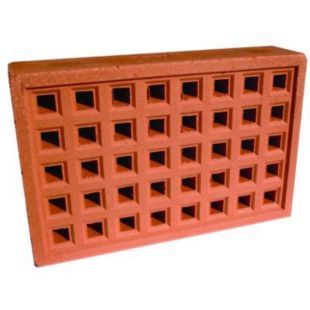TARAKOTA
It is a structural clay product. It is similar
to bricks and tiles with the only difference that this clay is homogeneous and
burnt carefully under controlled conditions.
It is the earthenware which is generally
used for ornamental parts of the building. It consists of 8 parts of sifted
clay, 3 parts of crushed pottery, 2 parts white sand and 1 part ground glass.
Saw-dust or ground cork is added to obtain porous terracotta. Terracotta can be
sawed and nailed very easily. It is manufactured by the selected type of clay
which is reduced to plastic mass by crushing, grinding and mixing thoroughly in
pug mills. Clay thus prepared is molded to shapes and then dried and coated
with a thin layer of clay, feldspar or flint which is called slip. The slip
coating is used to impart desired shapes to the product. Terracotta products
are then burnt in special kilns. It is manufactured in two groups i.e., (a)
Structural terracotta (b) Architectural terracotta.
Structural terracotta is used for partition
blocks, cornices, and ornamental blocks, moldings as ashlar blocks and as a brick
of arches. Terracotta blocks have better resistance to fire, moisture,
weathering and good insulation against heat and sound. These are light in
weight, with high strength.
Architectural terracotta is used for various
architectural decorative purposes such as window trims, mantle pieces, pillars
lining and drawing room decorative pieces etc.





No comments
Thank You For Your Comment.